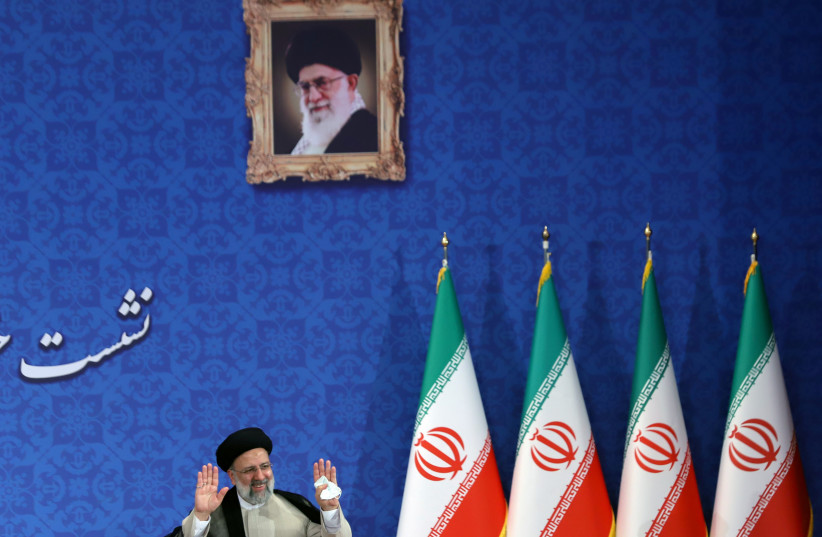“Historically, when faced with real pushback, the Iranians become more cautious. Will they seek an external crisis to try to promote a nationalist coalescence? Or will they look to defuse tension?”
OMRI NAHMIAS

WASHINGTON – The United States and Britain said on Sunday they would work with their allies to respond to the attack on the Mercer Street, a Liberian-flagged, Japanese-owned petroleum product tanker managed by Israeli-owned Zodiac Maritime.
As tension rises between the US and Iran, could that affect the dynamic of the Iran nuclear talks? The last round of talks took place almost six weeks ago, on June 20, and since then the sides have yet to reschedule the next one.
“It’s possible that if Iran is looking for a convenient excuse to end the negotiations, it will use any US retaliation for the Mercer Street attack to do so,” James Acton, co-director of the Nuclear Policy Program at the Carnegie Endowment for International Peace, told The Jerusalem Post. “If, however, Iran wants to revive the JCPOA – as I think it probably does – then I don’t think US retaliation will alter its calculations,” he added. “I doubt that US policy toward the nuclear negotiations with Iran has changed.”
if(window.location.pathname.indexOf(“656089”) != -1){document.getElementsByClassName(“divConnatix”)[0].style.display =”none”;}else if(window.location.pathname.indexOf(“/israel-news/”) != -1){ document.getElementsByClassName(“divConnatix”)[0].style.display =”none”; var script = document.createElement(‘script’); script.src = ‘https://player.anyclip.com/anyclip-widget/lre-widget/prod/v1/src/lre.js’; script.setAttribute(‘pubname’,’jpostcom’); script.setAttribute(‘widgetname’,’0011r00001lcD1i_12258′); document.getElementsByClassName(‘divAnyClip’)[0].appendChild(script);}
Ambassador Dennis Ross, a distinguished fellow at The Washington Institute for Near East Policy, told the Post that Iran’s approach is to build pressure on the US. “Responses on other issues may sober the Iranians,” he said, “but there is a risk that the Iranians can also miscalculate and overplay their hand.”
“Historically, when faced with real pushback, the Iranians become more cautious,” Ross noted. “Now, they are also facing protests domestically. Will they seek an external crisis to try to promote a nationalist coalescence? Or will they look to defuse tension? My bet is they will continue to build tension to test our response, and that means in Vienna, probably coming in with new demands, at least initially.”
“Raisi has not rejected the JCPOA, but in keeping with the supreme leader’s strategy, the regime will continue to engage in hard bargaining; they will continue to build the pressure on us by advancing their nuclear program, while denying the IAEA (International Atomic Energy Agency) its access for monitoring,” said Ross.
“Simultaneously, to return to the JCPOA, they will press for more expansive sanctions relief and assurances against the re-imposition of sanctions. I say hard bargaining because the Iranians are trying to see what they can get and will try to coerce more concessions; they must become convinced that no more concessions will be forthcoming and they will jeopardize getting sanctions relief at all if they persist on this path. They must also see that this path creates real risks that at some point, we may conclude that we no longer have a diplomatic path to limit their nuclear program. I think Iran aims to become a threshold nuclear weapons state and will test the limits of what is possible in this regard,” Ross said.
Reuters contributed to this report.
Content retrieved from: https://www.jpost.com/international/how-could-the-iran-ship-attack-affect-the-vienna-talks-675652.